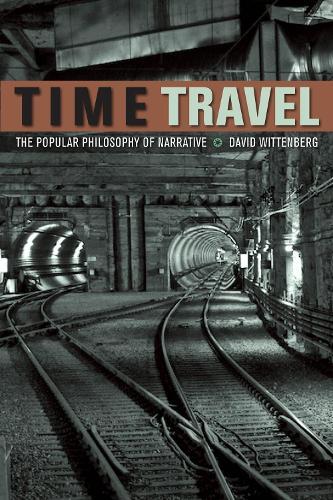Awards
- Winner of Science Fiction and Technoculture Studies Award 2014
Overview
This book argues that time travel fiction is a narrative ""laboratory,"" a setting for thought experiments in which essential theoretical questions about storytelling-and, by extension, about the philosophy of temporality, history, and subjectivity-are represented in the form of literal devices and plots. Drawing on physics, philosophy, narrative theory, psychoanalysis, and film theory, the book links innovations in time travel fiction to specific shifts in the popularization of science, from evolutionary biology in the late 1800s, through relativity and quantum physics in the mid-20th century, to more recent ""multiverse"" cosmologies. Wittenberg shows how increasing awareness of new scientific models leads to surprising innovations in the literary ""time machine,"" which evolves from a ""vehicle"" used chiefly for sociopolitical commentary into a psychological and narratological device capable of exploring with great sophistication the temporal structure and significance of subjects, viewpoints, and historical events. The book covers work by well-known time travel writers such as H. G. Wells, Edward Bellamy, Robert Heinlein, Samuel Delany, and Harlan Ellison, as well as pulp fiction writers of the 1920s through the 1940s, popular and avant-garde postwar science fiction, television shows such as ""The Twilight Zone"" and ""Star Trek,"" and current cinema. Literature, film, and TV are read alongside theoretical work ranging from Einstein, Schroedinger, and Stephen Hawking to Gerard Genette, David Lewis, and Gilles Deleuze. Wittenberg argues that even the most mainstream audiences of popular time travel fiction and cinema are vigorously engaged with many of the same questions about temporality, identity, and history that concern literary theorists, media and film scholars, and philosophers.
Full Product Details
Author: David Wittenberg
Publisher: Fordham University Press
Imprint: Fordham University Press
Dimensions:
Width: 15.20cm
, Height: 2.30cm
, Length: 22.90cm
Weight: 0.431kg
ISBN: 9780823249978
ISBN 10: 0823249972
Pages: 320
Publication Date: 31 December 2012
Audience:
Professional and scholarly
,
Professional & Vocational
Format: Paperback
Publisher's Status: Active
Availability: In Print

This item will be ordered in for you from one of our suppliers. Upon receipt, we will promptly dispatch it out to you. For in store availability, please contact us.
Reviews
A fruitful cross-pollination of theory and popular fiction, this is at once a careful genre study and a wide-ranging disquisition on narratology. Rob Latham, University of California, Riverside An ambitious, synthetic book. Wittenberg's brilliance lies in the comprehensive clarity with which he maps different discursive territories, and grasps how he can use time travel fiction to invent and practice, simultaneously, 'a popular philosophy of narrative.' Paul A. Harris, Loyola Marymount University
A fruitful cross-pollination of theory and popular fiction, this is at once a careful genre study and a wide-ranging disquisition on narratology. -Rob Latham, University of California, Riverside A fruitful cross-pollination of theory and popular fiction, this is at once a careful genre study and a wide-ranging disquisition on narratology. -Rob Latham, University of California, Riverside An ambitious, synthetic book. Wittenberg's brilliance lies in the comprehensive clarity with which he maps different discursive territories, and grasps how he can use time travel fiction to invent and practice, simultaneously, 'a popular philosophy of narrative.' -Paul A. Harris, Loyola Marymount University This is one of the rare academic books that are worth reading all the way through. -Pro Rege David Wittenberg's remarkable book seeks to account for our enduring fascination with the paradoxes of time-travel storues. -Science Fiction Studies In sum, 'Time Travel' offers several rewards to the reader. -Time's Books iTime Travelr is extremely well research and has a lively style, which is a pleasure to read. Academically, this book is a vital source for anyone researching or studying time-travel literature; for those with a general interest in the theme will enjoy learning about how time travel literature has evolved and how, most importantly, it has engaged us as readers. -Foundation: The International Review of Science Fiction ...[a] stimulating contribution to literary theory. -London Review of Books
<br> A fruitful cross-pollination of theory and popular fiction, this is at once a careful genre study and a wide-ranging disquisition on narratology. -Rob Latham, University of California, Riverside<p><br> An ambitious, synthetic book. Wittenberg's brilliance lies in the comprehensive clarity with which he maps different discursive territories, and grasps how he can use time travel fiction to invent and practice, simultaneously, 'a popular philosophy of narrative.' -Paul A. Harris, Loyola Marymount University<p><br>
Author Information
David Wittenberg is Associate Professor of English and Comparative Literature at the University of Iowa. He is the author of Philosophy, Revision, Critique: Rereading Practices in Heidegger, Nietzsche, and Emerson.




